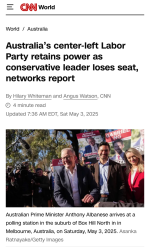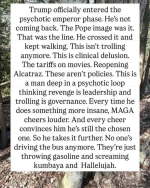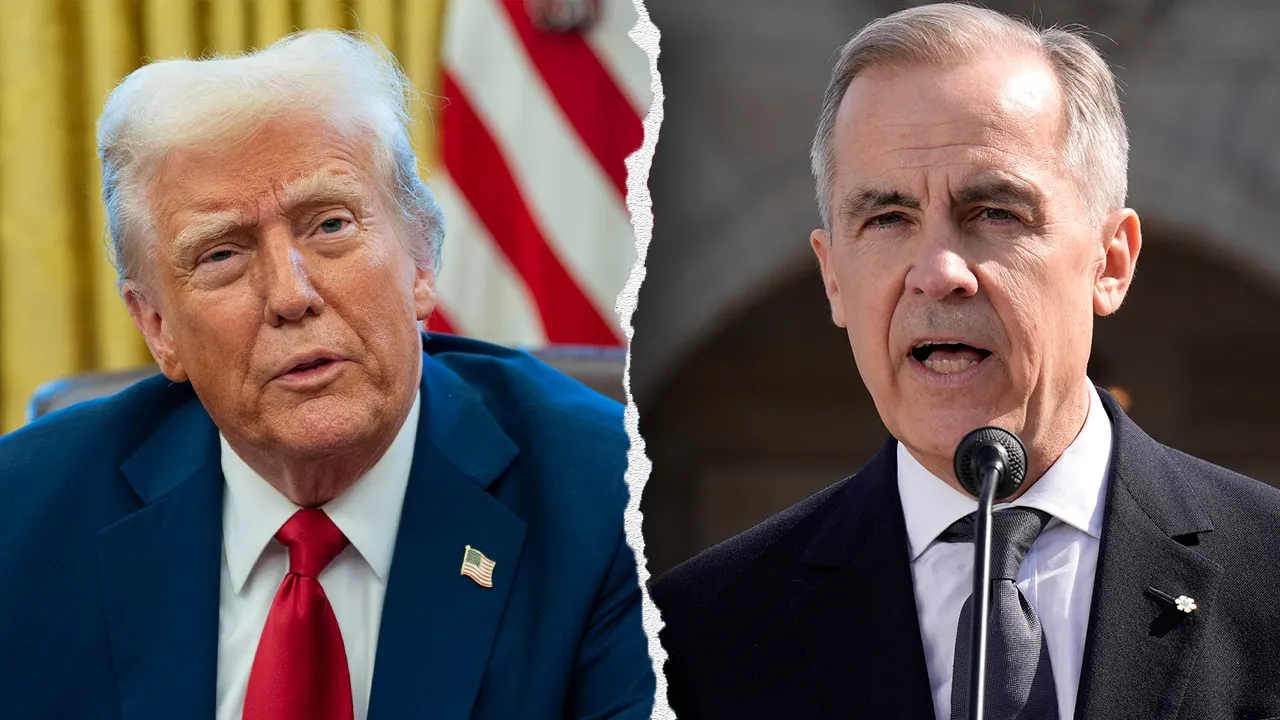Australia Just Gave Trumpism the Finger — And the World Took Notice.
By Dinika Keeble
Perth, WA | Saturday, May 3, 2025 | 8:00 PM AEST
It happened. While many of us gritted our teeth watching the world lean right, clinging to climate denial, conspiracy politics, and increasingly Trump-flavoured nationalism, Australia did the unthinkable: we veered back into sanity. And not quietly, either. We did it at the ballot box, under floodlights, with a sausage sizzle in one hand and our future in the other. Labor’s re-election under Anthony Albanese wasn’t just a political victory—it was a statement. A middle finger raised politely but firmly to Trumpism, authoritarian drift, and the performative cruelty that has crept across conservative politics like an oil slick.
Let’s not downplay it. The Coalition wasn’t just defeated—they were annihilated. And just like in Canada’s recent election, even the party leader couldn’t hold his own seat. That isn’t just a swing. It’s a reckoning.
In the lead-up to the election, Australia faced a familiar crossroads: do we double down on fear, division, and delay tactics, or do we move forward with a government that at least acknowledges that the world is burning and that rural communities are tired of being lied to? We chose the latter. Decisively. And as one particularly sharp Facebook commentator put it, “One fat little orange man has had more negative influence on Conservative politics around the world than the price of gas or eggs.”
Trumpism, once the darling of populists everywhere, has proven to be political poison. Where once conservative parties around the globe rode the coattails of the MAGA movement, they’re now watching in horror as their own base crumbles beneath them. Because it turns out that most people, when given the choice, don’t want to be governed by outrage. They don’t want leadership that rages at the wind, demonises diversity, or plays footsie with conspiracy theorists.
Australia said no. Not to nuclear fantasy economics. Not to dog-whistle immigration politics. Not to exporting cruelty dressed as trade policy. And not to political parties so devoid of substance they now require imported American slogans just to stay culturally relevant.
Take the nuclear debate. It’s dead. Gone. Buried next to Barnaby Joyce’s credibility. The people of this country have consistently rejected the nuclear lobby’s tired spin—and now, with this result, we can safely say Australia won’t be investing billions into technologies that don’t yet work, require vast amounts of water, and leave waste we still don’t know what to do with. The Coalition’s nuclear fetish was never about science—it was about delay. About distraction. About anything but renewables, community energy, and the very real transformation already underway.
Then there’s the live sheep export debate. This result ends it. The phasing out of this outdated, unethical industry will now continue—no more political interference, no more moral contortionism to justify horror on ships. This wasn’t just an animal welfare win. It was a signal that policy can, and should, align with public values. And that cruelty isn’t a cultural tradition worth defending.
But perhaps most importantly, this election signals the end of the slow slide toward Trumpist mimicry in Australian politics. The half-baked culture wars, the anti-woke tantrums, the barely veiled attacks on public institutions—this Americanised nonsense has found its limit. Australians watched what happened in the United States: the insurrection, the stripping of women’s rights, the politicisation of basic science, the naked corruption—and said, “Not here.”
It didn’t work. The ghost of Trump, once seen as a populist lightning rod, now drags parties down. Around the world, conservative leaders are watching their polling numbers crater when they lean into the same playbook. The “Trump effect” isn’t strategic anymore. It’s radioactive.
And so Australia steps up. Not as perfect. Not as progressive as we’d like to pretend. But undeniably, proudly, rational. We just sent a message to the world that facts still matter.
That climate change is real. That cruelty isn’t clever. And that if you run for office with a platform built on conspiracy, culture war, and climate denial, we will hand you your hat at the ballot box.
There’s a deeper relief here too—one that transcends parties. It’s the relief of people who’ve spent years being gaslit by political leadership pretending the sky wasn’t falling. People who have marched, and written, and shouted into the void, trying to convince their leaders that fossil fuels do not have a diplomatic future, that refugees are not political tools, and that farmers, regional workers, and unions deserve better than being treated as chess pieces in someone else’s re-election strategy.
This is their win. This is a win for communities who believe in local energy. For First Nations people demanding truth-telling and treaty. For teachers and nurses and wildlife carers. For anyone who looked at the last decade and said, “We can do better than this.”
Of course, there will be those who say it wasn’t a landslide for progress—that Labor governs from the centre, that the Greens or independents deserve more credit. And they’d be right to some extent. But that’s the beauty of this result. It wasn’t just a vote for a party. It was a vote against a political style. A rejection of a worldview. A clear line drawn under the idea that anger, resentment, and Americanisation will win you hearts in a country where most people still value a fair go and a functioning democracy.
So let’s own this moment. Let’s savour the reality that Australia got it right. That while others flirt with fascism-lite and pretend the climate crisis is optional, we just chose accountability. We chose a path that, while imperfect, at least faces forward. Let’s remind ourselves that we still have work to do—but we’re not doing it under the shadow of imported authoritarianism anymore.
And to Donald Trump—yes, this really is partly your fault. You made authoritarianism look so ridiculous, so dangerous, so hollow, that even your ideological offspring in other countries couldn’t survive the backlash. You turned conservatism into a clown show, and now your brand is toxic even on the other side of the world.
So here’s to Australia. A little sunburnt, a little sarcastic, but wise enough to see the game and call it out. We didn’t just dodge the drift toward American-style collapse—we slammed the brakes, turned the wheel, and beeped the horn on the way out.
We’ve still got problems. But at least, thank God, they’re ours. And not orange ones wearing too-long ties, preaching lies about liberty while torching the foundations of democracy.
I’m Dinika Keeble, a regional policy advocate and freelance political writer based in Western Australia, with a background in state politics and a focus on democracy, environmental accountability, and rural equity.














